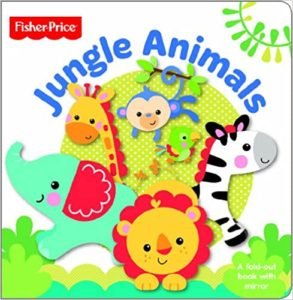By Anushka Verma
Recently, in the case of Mattel Inc. v. Present Enterprises and Ors., the Delhi High Court was faced with the question of protection of foreign works under Indian Copyright Law and protection of word marks and shape marks. The case was decided ex-parte, which also became a relevant factor in the decision of the Court. READ ORDER HERE
Facts:
Mattel Inc., the plaintiff, is in the business of selling games, toys, etc. for children since 1945. The plaintiff has made claims against the defendants for the following.
- Copyright violation in respect of its ‘Rainforest Family’ characters. The plaintiff claims that the cartoon characters were created with unique colour combination which makes them attractive to the children. These characters were registered in the USA in 2014, and by virtue of Article 40 of the Indian Copyright Act, this grant of copyright would extend to India as well. Further, products featuring the ‘Rainforest Family’ characters were also launched in India in 2018.
- Passing off of goods of the defendant as plaintiff’s by using their trademark ‘KICK AND PLAY’. The plaintiff claims to have adopted the said mark in 2010, which it started using in India in 2012. It applied for the registration of the same in India on 13th August 2020.
- Violation of shape mark of the KICK AND PLAY baby gym. The plaintiff applied for registration of the said shape mark in India on 9th September 2020.
The plaintiff impleaded 5 defendants in the suit, wherein only defendant No. 4 Flipkart Internet Pvt. Ltd. accepted the summons and notice. The plaintiff sought to restrain the defendant Nos. 1 to 3 from selling products violating ‘Rainforest Family’ copyright and listing products like baby gyms with suffix or prefix ‘KICK AND PLAY’.
Court’s Decision:
The Court acknowledged that the Plaintiff’s copyright over the Rainforest Family is valid as the Indian Copyright Act, 1957 accords protection to foreign works under Section 40. Thereby, the copyright registrations in USA shall act as a prima facie proof of author’s original work in India. The Court also acknowledged the unique style of the copyrighted works. Therefore, a prima facie case was made out for the grant of ex parte ad interim injunction for the alleged copyright violations.
The Court also directed the plaintiff to provide the URLs relating to the advertisement and sale of the products which violate the copyright of the plaintiff, pursuant to which defendant No.4 will remove the listings from its platform.
However, with regard to the alleged trademark violation of the mark ‘KICK AND PLAY’ and the alleged shape mark violation, it was reasoned by the Court that the Defendants must be given a chance to be heard. In this regard, no ex parte ad interim injunction was granted.
Although not mentioned, the Court in this judgement seemed to have followed the line of reasoning against grant of ex-parte ad interim injunction orders for trademark violations laid down by Division Bench of the Delhi High Court in Apple Inc vs Rohit Singh & Anr. It stands to reason that in interest of avoiding ordinary words and phrases from being protected, an ex-parte ad interim injunction must only be granted when a strong case of prima facie infringement can be made out against an inherently distinctive mark. The instant case also reiterates this principle.
Image Source: here.


















